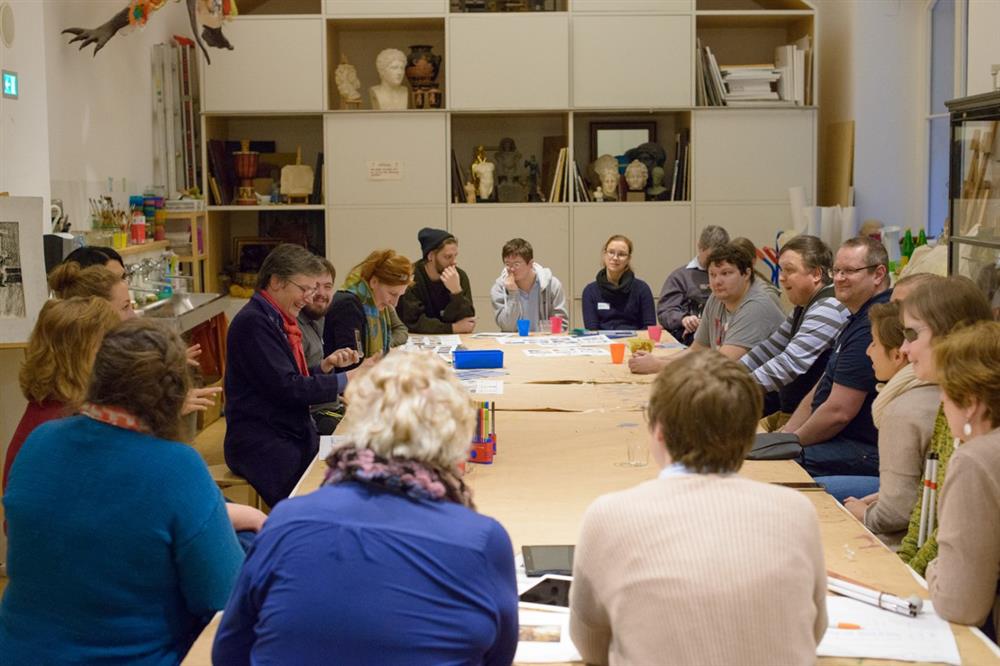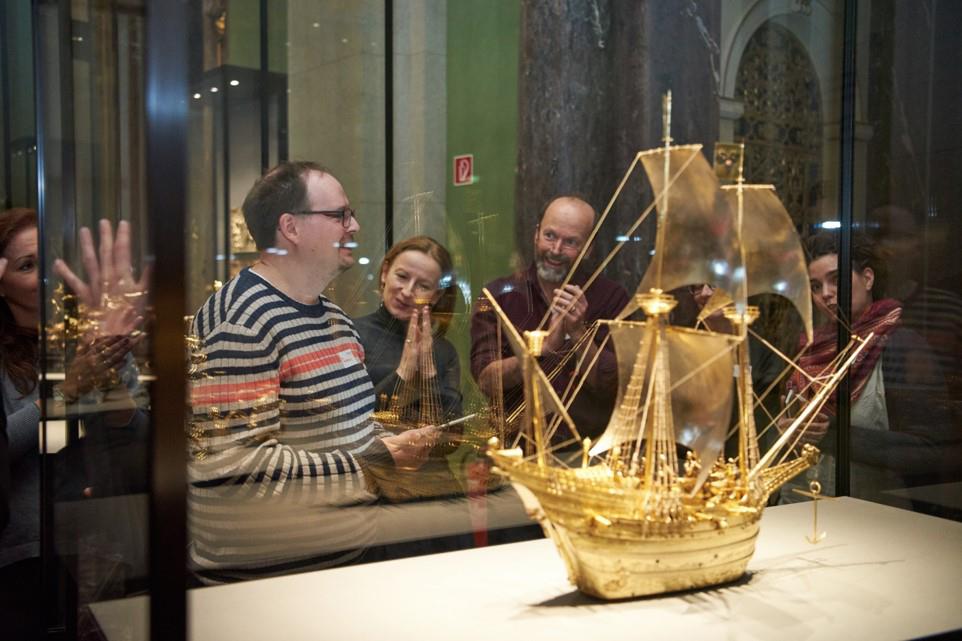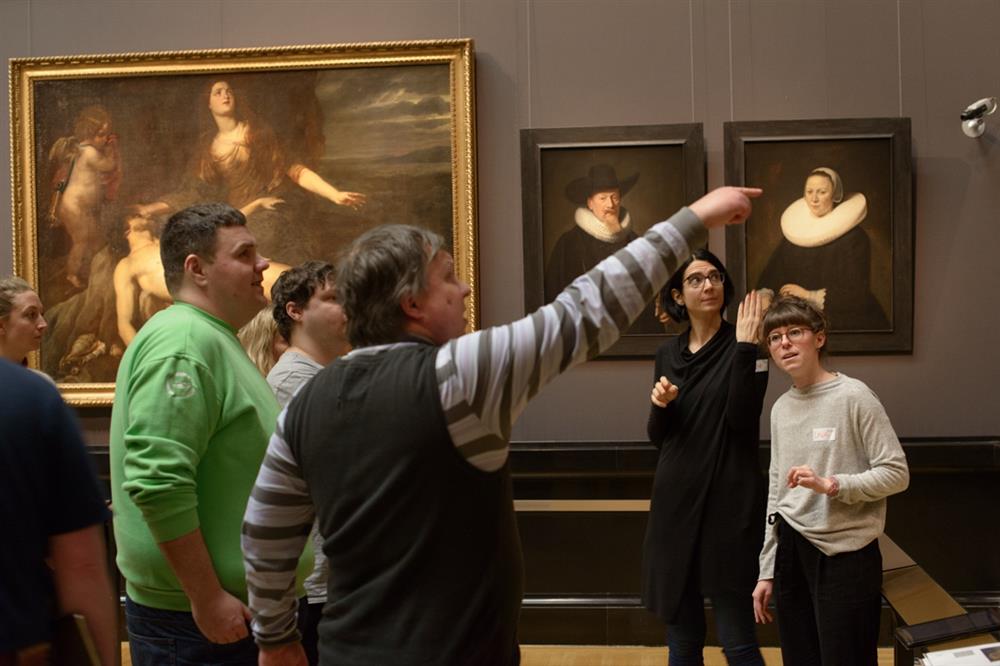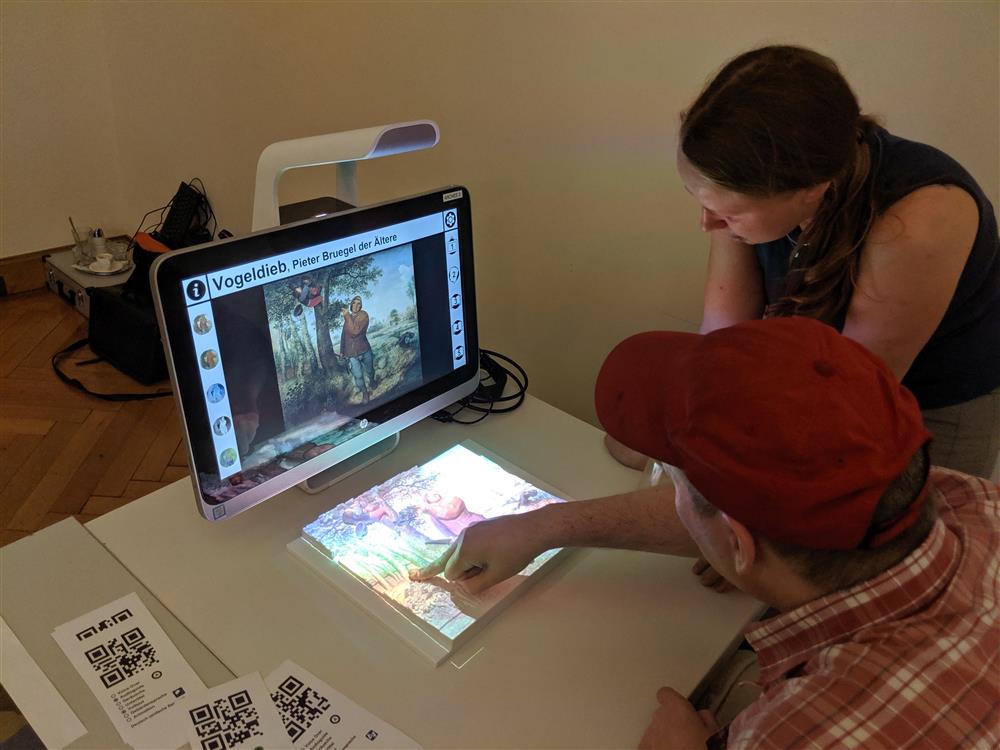Multi-stakeholder groups developing accessibility solutions in museums
- Solution
- ARCHES
- Organization
- KHM - Museum of Art History Vienna
- Country of Implementation
- Austria
- Region
- Europe
- Subregion
- Western Europe
- City
- Vienna
- Start Year
- 2016
- First published
- 31.01.2020

Solution details
“True inclusion means working hard and creatively. That's what I learned from being part of the ARCHES workshops.” Sabine Gruber, workshop participant
Accessible Resources for Cultural Heritage EcoSystems (ARCHES) is a three-year, EU-funded project that brings together 12 European partners from the fields of culture, technology, and academia, as well as people with disabilities. The programme develops, tests, and implements solutions for improving museum accessibility so that people with various disabilities can experience museums independently. Notable innovations include tactile art and a soon-to-be-released smartphone app to aid museum navigation. Between September 2016 and November 2019, 166 workshops were held to identify and design innovations.
Problems Targeted
Attending museums for learning and culture can be difficult for people who are blind or deaf, or for people with learning difficulties, due to barriers to navigation and to understanding exhibits.
Solution, Innovation and Impact
ARCHES brings together people with disabilities, technology companies, universities, and museums to design and implement solutions to improve access to culture. Participative workshops consisting of around 20 people with a variety of disabilities create, discuss, test, and improve solutions for enhancing museum accessibility, with an initial focus on six museums in London, Madrid, Oviedo (Spain), and Vienna. Innovations include tactile reliefs of museum artwork for people with visual impairments, with an individual relief created at each of the six participating museums. Participants with various disabilities select which piece of artwork they want to work with and test all phases of development. Another innovation is an app to aid independent navigation and learning about exhibits within the museums, which will be released on Android and iOS in 2020. In addition, the project has created a publicly available how-to guide on inclusive museum activities entitled “Towards a participatory museum.”
Funding, Outlook and Transferability
ARCHES is funded by the European research and innovation programme HORIZON 2020 under the project number 693229, which included development of the app. Further development and implementation of new measures will be covered by participating museums, if the project is not extended. The project has been designed such that it can be easily implemented in other museums and languages. Training sessions on how to use the app and relief will take place in other EU countries, including France, Italy, and Germany. In addition, the project has led to participating museums to consider other accessibility measures. For example, the Kunsthistorisches Museum offers regular barrier-free guided tours since October 2019. ARCHES is aiming to encourage other museums and cultural institutions to provide art education in more diverse forms, with the hope that such practice will become the norm.
Media
Life Story

THE STORY OF THOMAS KOECK (39), A USER OF ARCHES ACCESSIBLE MUSEUMS PROJECT
“There are now guided tours in the museum for people with different needs and abilities.”
Since the age of ten I have had issues with balance, motor senses, and speech. I am very much interested in visual arts, and a friend introduced me to Rotraut Krall and her team at the Kunsthistorisches Museum, working on the ARCHES programme. They organized a series of workshops, including people with various disabilities, which I was invited to join. Working with them was inspiring, and jointly we pointed out a lot of improvements that can be made at the museum. Unfortunately the project is over, but now there are guided tours in the museum for people with different needs and abilities, and we hope that the project will be continued in the future.
Related information
- Connections
- 2
-
Organization
- People

